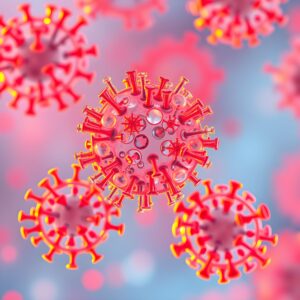A new study has suggested that parts of COVID-19 may remain in the brain for a significant period, even after the patient has recovered from the infection. The study, conducted by researchers from Georgia State University, found evidence of the virus’s presence in the brains of deceased patients who had been diagnosed with COVID-19.
The study, which has been published in the journal Viruses, used autopsies to examine the brains of ten deceased COVID-19 patients. The researchers found evidence of the virus in the brainstem, which controls many of the body’s vital functions such as breathing and heart rate.
The researchers also found evidence of the virus in the olfactory bulbs, which are responsible for our sense of smell. This suggests that the virus may be able to travel from the nose to the brain, a phenomenon that has been previously reported in COVID-19 patients.
The findings are significant because they suggest that COVID-19 may have the potential to cause long-term neurological effects in patients. The brainstem is a critical part of the brain, and any damage to it can have serious consequences. If the virus is able to persist in the brain, it could potentially lead to neurological symptoms such as cognitive impairment, headaches, and even seizures.
The study’s lead author, Dr. Mukesh Kumar, has cautioned that more research is needed to understand the long-term neurological effects of COVID-19. However, he believes that the findings could help to explain why some COVID-19 patients continue to experience neurological symptoms even after they have recovered from the infection.
The study’s findings also highlight the importance of understanding the full scope of the COVID-19 pandemic’s impact on human health. While much of the focus has been on the virus’s respiratory effects, the study suggests that it may have far-reaching consequences that we are only beginning to understand.
As the pandemic continues to evolve, it will be critical for researchers to continue investigating the virus’s impact on different parts of the body. Only by understanding the full scope of the virus’s impact can we hope to develop effective treatments and long-term solutions to this ongoing global health crisis.
In the meantime, the findings of this study underscore the importance of taking precautions to prevent the spread of COVID-19. While vaccination has been shown to be highly effective in preventing severe illness and hospitalization, it is still important to practice social distancing, wear masks, and take other steps to limit the spread of the virus. By working together and staying vigilant, we can continue to make progress in the fight against COVID-19 and protect the health and well-being of our communities.












